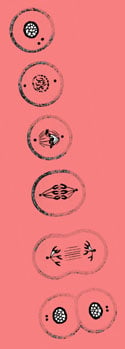James MacMillan: Interview about Parthenogenesis

James MacMillan: Interview about Parthenogenesis
James MacMillan discusses the creative background to his new work receiving its premiere in Cambridge on 12 September.
What drew you to Parthenogenesis for the subject of your new work?
The poet Michael Symmons Roberts has researched a great deal in this area, and he uncovered a true story that acted as the starting point for our collaboration on the work. A young woman was caught on the streets of Hannover in Germany during an Allied bombing raid in 1944. She was unable to find her way to a shelter, and was thrown to the pavement by the blast of a bomb in a nearby street. She recovered from minor injuries, but nine months later gave birth to a daughter. This baby girl had identical fingerprints, blood type, and other indicators to the mother. The woman adamantly maintained that she had not had sex, and medical tests supported her claim. How was the child conceived? Examining doctors hypothesised that the shock of the bomb may have jarred a dormant body cell within the woman’s womb, triggering parthenogenesis – nonsexual reproduction.
This immediately throws up parallels with the Virgin birth. Was it this aspect that interested you in linking the often opposed worlds of genetics and religion?
Well the Greek word Parthenos does mean Virgin, so some Marian references are inevitable. But right from the start we didn’t want to make this an updating of the Annunciation, but rather to explore wider issues of creativity. The whole debate on genetics is of increasing interest to artists, whether from an ethical, spiritual or theological standpoint. It examines the nature of life itself. In Parthenogenesis we tried to find a way of creating an opposition between the light and dark sides of creativity. Rather than Kristel’s virgin birth being triggered by a divine visitation it is caused by an act of violence, the dropping of a bomb. The male singing protagonist is not a Gabriel-figure, but a fallen angel, Bruno, much more ambiguous and shadowy – a wounded animal prowling the streets. So the drama is not intended as a religious metaphor, but something more complex. The subject raises an extreme range of responses. Genetics was hailed in wartime Germany as a Holy Grail, but it is also described as the ultimate blasphemy.
The intimacy of the new work seems a long way from the grand operatic passions of Inès de Castro.
Yes, it is scored for only two singers - a soprano and baritone – plus a speaking actress and a compact instrumental ensemble. This contained form is a result of my approach to the work growing out of song rather than operatic drama. I can imagine Parthenogenesis being performed as a concert work, or as a simple and stylised music-theatre piece relying on lighting as much as on physical action, or in a more fully staged context. It is similar in this respect to Búsqueda which has crossed these boundaries.
How is the musical material related to the subject matter?
The most obvious manifestation is the treatment of Anna, the unborn child, whose text is spoken by an adult actress. Her sections of the score are accompanied by material based on the genetic sequencing of Adenine-Cytosine-Thymine-Guanine, currently being mapped in the Human Genome Project, which is providing scientists with a supposed calculation of humanity. A, C and G are represented by their pitches, while T takes the form of a chord. Anna’s static music is also distanced from the more dramatic music for Kristel and Bruno by the use of an electronic soundscape. In terms of instrumentation there are references in the distance to the wartime setting.
Is the theme of birth, also explored in depth in Quickening, to be a continuing thread in your work?
It is possible that the theme may be continued if Parthenogenesis provides a way forward for a future larger-scale dramatic work. There is certainly scope for a more operatic treatment of the narrative, expanding on the historical background so that Kristel’s story can be set against the sinister scientific experimentation and pleas for deliverance of that time in Germany. But in general the whole subject of human and artistic fecundity is of central interest for me. Questions about creation will always be at the centre of any composer’s work, which is essentially a bringing into being.
Interviewed by David Allenby
Commissioned by Theology Through the Arts
for its Arts Festival in Cambridge (10-17 September)
Premiere: 12 September 2000
Corn Exchange, Cambridge
Britten Sinfonia conducted by the composer
